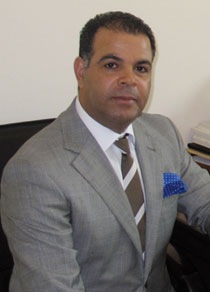
|
 |
 |
|
|
|
|
|
|
|
|
|
|
|
|
|
|
|
|
|
|
|
|
|
|
My Message to Human Rights DefendersHasan Moosa Shafaei
The relationship between the Government and civil society in Bahrain was short-lived. Despite the flourishing of civil society at the commencement of the reforms era in 2000, with the emergence of hundreds of civil society organizations in all fields, including human rights; the relationship quickly deteriorated leaving behind a common sense of disappointment. The government felt that human rights organizations, in particular, turned away from human rights activism by indulging in politics and ultimately over-politicizing human rights work. Furthermore, the government found that emerging human rights organizations were not rational and were not seeking a gradual political and human rights development, despite knowing that the political system is incapable of omitting or transcending stages due to its own special circumstances. For their part, human rights organizations were also disappointed. They accused the government of bearing down heavily on their activities, as well as claiming that the government has never been serious about reform in the first place nor was it seeking a break with the legacy of the past, Ultimately, the clash broke out between the two sides, amid a charged political atmosphere and a sharp political conflict, which eventually spilled out into the street. Thus, Bahrain, as a state, society and institutions, emerged as the biggest loser. The Bahraini experience has failed at the hands of its participants. Consequently, the human rights situation deteriorated, with human rights organizations achieving nothing except further attrition. Nowadays, such organizations have almost become political organizations or branches of such organizations, rather than being human rights organizations. If we aspire to improve the human rights situation: It is necessary to bridge the gap in the relationship between the Bahraini civil society and government. It is necessary for each side to understand the nature of the other side’s activity and fears. It is necessary to resort to the governance of a modern law, which provides the necessary breathing space for the civil society in order to evolve and grow. Ultimately, it is necessary to have real cooperation on the ground. It is necessary to learn from the harsh lesson of the past five years to carve a better future. Political wrestling has led to nothing but the decline in human rights conditions. We have directed several messages to the government, urging it to take the lead; to involve the civil society in its programmes and to reconsider its policies and practices relating to human rights. This time, however, my message is addressed to human rights defenders in Bahrain. To them I say:
|
